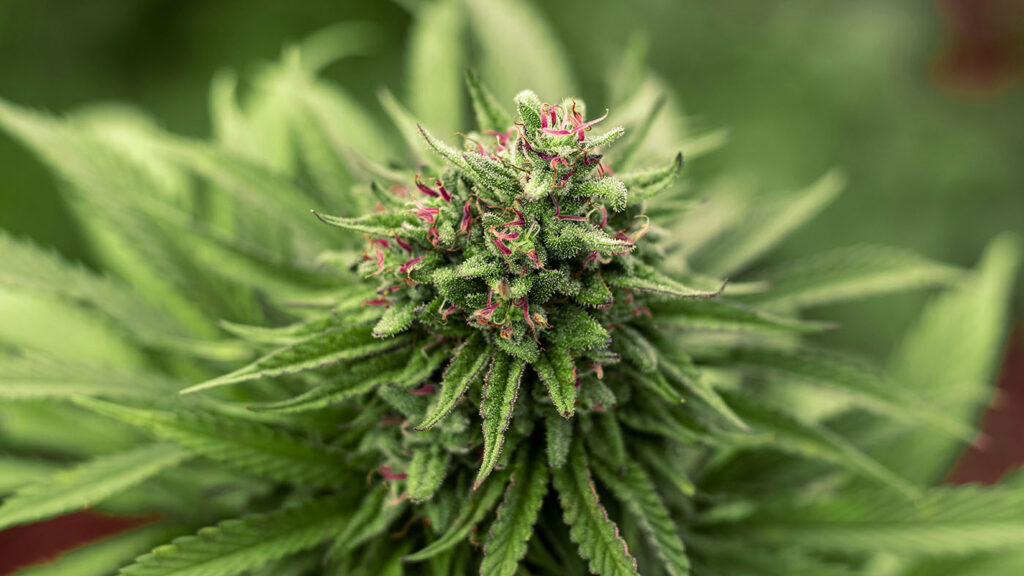Estimated reading time: 9 minutes
Table of contents
- Overview
- Legal Possession and Personal Liberty
- Expungement, Release, and Resentencing
- License and Regulatory Structure
- Social Equity and Inclusion in the Industry
- Labor Peace Considerations
- Local Control and Taxation
- Standardizes Penalties for Underage Use of Cannabis and Alcohol
- Additional Resources
- New Jersey Cannabis Legalization FAQs
- Free eBooks For Cannabis Business Success
- Latest Articles

Overview
On December 27, 2020, in response to overwhelming support for a November ballot initiative, the New Jersey Senate and Assembly finalized the passage of two bills — S.21/A.21, “The New Jersey Cannabis Regulatory, Enforcement Assistance, and Marketplace Modernization Act,” and A.1897 — that collectively reshape the legal landscape for cannabis in New Jersey. On February 22, 2021, the legislature passed and Gov. Murphy signed a third piece of legislation, A.5342, which standardizes penalties for underage possession of cannabis and alcohol. All three bills are detailed below. Collectively, these bills create the legal framework for cannabis legalization in New Jersey.
Legal Possession and Personal Liberty
- Eliminates penalties for possessing, purchasing, or transporting cannabis paraphernalia.
- Eliminates the use of, or being under the influence of, cannabis or hashish as a punishable offense.
- Eliminates the prohibition for use or possession of drug paraphernalia.
- Eliminates the odor of cannabis or burnt cannabis or hashish as a reason to initiate a search of a person.
- Eliminates law enforcements’ ability to arrest, detain, or otherwise take into custody a person for unlawful distribution or possession of cannabis unless the person committed another violation of the law.
- Removes requirement to deliver cannabis to nearest law enforcement for possession of cannabis, cannabis-infused product, or concentrate.
- First offense for distributing one ounce or less is a written warning.
- Decriminalizes possession of 17 grams or less of hashish and six ounces or less of cannabis, meaning no crime, offense, or civil violation.
- Reduces the penalty for manufacturing, distribution, and possession with intent to distribute up to one ounce or less to a written warning, followed by charge of a fourth degree crime for subsequent instances.
Expungement, Release, and Resentencing
- Eliminates the ability to deprive rights or privileges based on prior possession or distribution arrest or conviction. This includes driver’s licenses and other professional licenses; housing assistance; social services; and custody rights for biological parents, adoptive, or foster parents, or for approval or disapproval to serve as a foster parent.
- Removes prior records for possession and distribution at no cost.
- Makes disclosure of the existence of a prior possession or distribution arrest or conviction by a business or individual an unlawful act.
- Requires court to develop a system for sealing records for possession or distribution unlawful acts and any associated payments or community service.
- Persons incarcerated, on probation, parole, or other forms of community supervision may move to have their sentences reviewed by the court at no charge.
- Eliminates courts’ ability to order cannabis testing or refrainment for pre-trial defendants.
- Eliminates consideration of cannabis offenses in setting conditions for release or bond.
- Eliminates the ability to revoke pre-trial defendants’ release based on possession or distribution unlawful acts or the presence of cannabinoids in bodily fluids.
- Eliminates courts’ ability to impose suspended sentences or probation based on possession or distribution unlawful acts or the presence of cannabinoids in bodily fluids.
- Eliminates courts’ ability to revoke or suspend probation based on a possession or distribution unlawful act.
- Eliminates parole revocation based on possession or distribution unlawful acts or the presence of cannabinoids in bodily fluids.
License and Regulatory Structure
- Expansion in scope of five-member Cannabis Regulatory Commission established by “Jake Honing Compassionate Use Medical Cannabis Act.”
- Cannabis Regulatory Commission has the power to regulate the purchase, sale, cultivation, manufacturing, packaging, transportation, and delivery of “cannabis” items. It also has the power to grant, refuse, suspend, revoke, and limit licenses or conditional licenses.
- Within 180 days after bill is signed into law, or within 45 days of all five members of the commission being appointed, the commission will adopt rules and regulations to carry out its duties.
Social Equity and Inclusion in the Industry
- 25% of the total licenses issued, regardless of class, to such applicants OR to a business that includes a plan to employ at least 25% of employees who reside in impact zones.
- 10% of total licenses issued for each class, and at least 25% of the overall total licenses, would be designated for and only issued to “microbusinesses.”
- All license fees and penalties collected will be deposited into the “Cannabis Enforcement Assistance and Marketplace Modernization Fund.” The fund would also receive deposits from tax revenues on the sale of personal use cannabis items. Money would be appropriated as follows:
- 70% for investments, including through grants, loans, reimbursements for expenses, and other financial assistance, in municipalities described as “impact zones,” as well as directing financial assistance to qualifying persons residing therein; and
- 30% to pay for the operational costs of the commission, reimbursing expenses incurred by any county or municipality, and training costs associated with Drug Recognition Experts.
- Re-titles the Office of Minority, Disabled Veterans, and Women’s Medical Cannabis Business Development by removing the word “Medical.” The office would establish unified practices and procedures for promoting participation in the lawful operation of personal use cannabis by persons from socially and economically disadvantaged communities, including by prospective and existing minority-owned and women-owned businesses.
- The effectiveness of the office would be measured by whether the office’s actions resulted in not less than 30 percent of the total number of cannabis licenses issued by the commission being issued to businesses certified by the office AND whether the actions resulted in not less than 15 percent of licenses being issued to certified minority-owned businesses and not less than 15 percent of licenses being issued to certified women-owned and disabled veteran-owned businesses.
- The legislation establishes an optional Social Equity Excise Fee. These funds would invest, through grants, loans, reimbursements for expenses, and other financial assistance in for-profit and non-profit organizations and public entities, as well as direct financial assistance to individuals, in order to create, expand, and promote educational and economic opportunities and activities for the health and well-being of the both communities and individuals.
- All license fees and penalties collected will be deposited into the “Cannabis Enforcement Assistance and Marketplace Modernization Fund.” The fund would also receive deposits from tax revenues on the sale of personal use cannabis items. Money would be appropriated as follows:
Labor Peace Considerations
- Applicants, except microbusiness or conditional licenses, must submit attestation that the applicant has entered into a labor peace agreement. Maintaining the agreement is an ongoing condition for full, annual licensure, unless a microbusiness. Failure to make a good faith effort to enter into a collective bargaining agreement within 200 days of the opening of a cannabis business, based on full or conditional licensing, would result in suspension or revocation.
Local Control and Taxation
- Municipalities have the option to authorize and regulate the number of licensed cannabis businesses in their location, as well as the manner and times of operation. However, only the commission can regulate delivery services.
- Municipalities can adopt a local transfer tax imposed on sales. The tax cannot exceed 2% of the receipts from each sale by a cannabis manufacturer; 1% of the receipts from each sale by a cannabis wholesaler; and 2% of the receipts from each sale by a cannabis retailer.
Standardizes Penalties for Underage Use of Cannabis and Alcohol
- Makes underage possession of cannabis or hashish (up to one ounce or 28.35 grams) a civil penalty of $50 for persons between 18 and 20 years of age.
- For underage possession over the lawful possession limit for persons between 18 and 20, the civil penalty is $100.
- For persons under age of 18 who commit a possession or consumption violation, for a first offense, the person would be subject to a “point of violation” warning or “juvenile intervention.”
Additional Resources
New Jersey Cannabis Legalization FAQs
Who are the cannabis regulatory agencies in New Jersey?
The New Jersey Cannabis Regulatory Commission (NJ-CRC) oversees the regulation of New Jersey’s recreational cannabis industry under the CREAMM Act (Cannabis Regulatory, Enforcement Assistance, and Marketplace Modernization Act). The NJ-CRC is responsible for ensuring compliance, issuing licenses, and regulating the market to ensure fair, safe, and equitable practices.
If I want to apply for a New Jersey Cannabis License where do I start?
From securing municipal approvals, and applying for and receiving a cannabis license, to developing SOPs and facility designs, there are significant considerations involved. Our consultants provide end-to-end support to help you launch and sustain your cannabis business.
What services do our New Jersey Cannabis Consultants provide?
Our consultants offer cannabis business planning, application writing, facility design, municipal approval, operational guidance, and cannabis M&A advisory services to help you achieve your goals in the cannabis industry.
Do our New Jersey Cannabis Consultants assist with cannabis applications and licensing?
Yes. Our team of operational advisors and technical writers will craft a comprehensive, compliant, and unique application.
Where can I find more information on opening a cannabis business in New Jersey?
Visit our New Jersey cannabis page to learn more about local laws and regulations, license types, fees, and more.
How do I reach your New Jersey cannabis consulting team?
Our consulting team offers a complimentary consultation and is excited to partner with you in your journey. Contact us to set up your consultation call today.
Where do I find more information on the process of applying for a cannabis license?
The cannabis business licensing application process is complex and demands meticulous planning, regulatory compliance, and operational expertise. Numerous variables and intricate details must align with the framework established by cannabis regulators and local authorities. Learn more about the process here.
Free eBooks For Cannabis Business Success
Latest Articles
- Missouri Cannabis Licensing & Business Opportunities 2026Missouri has established itself as the premier success story for cannabis in the Midwest, evolving from a standard medical regime to a high-volume adult-use market that exceeded $1.52 billion in annual sales in 2025. As the market enters the 2026–2027 biennium, the landscape is shifting from rapid expansion toward operational maturation and specialized entry.
- North Carolina Cannabis Licensing & Business Opportunities 2026North Carolina remains one of the final significant jurisdictions in the United States without a comprehensive medical or adult-use cannabis program. However, the 2026–2027 biennium is projected to be the most consequential period in the state’s cannabis history. Driven by the formation of the North Carolina Advisory Council on Cannabis and an impending federal “hemp cliff,” the state is moving from a period of passive prohibition toward a structured, albeit highly restrictive, regulatory framework.
- Nebraska Cannabis Licensing & Business Opportunities 2026Nebraska is entering the 2026–2027 biennium at a historic crossroads. Following the 71% voter approval of Initiatives 437 and 438 in late 2024—the largest margin for a medical cannabis initiative in U.S. history—the state is currently standing up its first regulated medical infrastructure.
- Florida Cannabis Licensing & Business Opportunities 2026Florida represents the most capital-intensive and professionally structured cannabis market in the nation. As of 2026, the state is at a crossroads: it is both expanding its mature medical program and preparing for a potential constitutional shift toward universal adult-use access. On November 3, 2026, Florida voters will decide on the Marijuana Legalization Initiative (Amendment 3). Passing this requires a 60% supermajority—a high threshold, but one that polls suggest is within reach.
- Virginia Cannabis Licensing & Business Opportunities 2026As Virginia transitions from its current “possession-only” model toward a fully regulated retail market, the 2026–2027 biennium represents a once-in-a-generation window for market entry. Unlike the vertically integrated “medical-only” regimes of the past, Virginia’s upcoming framework focuses on decentralization, specifically architected to favor small Virginia-based operators over large multi-state corporations.
- Minnesota Cannabis Licensing & Business Opportunities 2026Minnesota is currently undergoing a transformative shift in its cannabis landscape, moving from a semi-regulated hemp-derived market toward a fully comprehensive adult-use framework. Overseen by the Office of Cannabis Management (OCM), the 2026–2027 biennium represents the critical “enforcement phase” where temporary registrations sunset and permanent, merit-based licenses define the market’s long-term leaders.











